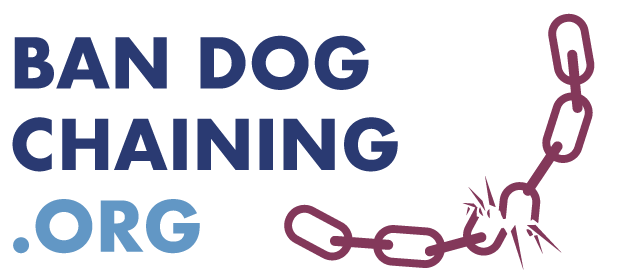Get Involved
PETITIONSAnimal cruelty and neglect is an animal welfare crisis.
In the absence of tough laws to protect our animals it has been left to the community to shine a light on the catastrophic failure of policy to provide the most basic of needs. Shade/shelter.
In response to the absence of adequate laws to protect the rights of all animals at all levels a number of organisations have emerged to create a force for change.
Help Animals Need Shade send a message to Australian Ministers
Add your name to the petition on the right to send an email directly to State and National Agriculture Ministers to let them know that current legislation around shade and shelter for animals in Australia is not enough!
Your voice is the most important weapon we have to fight against cruelty and injustice and by adding your name to our petition you help add your voice and weight to making real long standing change for the benefit of animals across Australia.
If you would prefer a more personal approach, we recommend a hand written letter to your MP – You can view guidelines and a fully copy of the petition letter at our letter writing page (Click Here)
The petition was written with the assistance of Marilyn Nuske at Ocean Legal – http://www.oceanlegal.com.au/
[emailpetition id=”1″]
MAKE SHADE SHELTER MANDATORY FOR ALL FARM ANIMALS
– E-Petition
Queensland residents draws to the attention of the House there is presently no mandatory requirement for the provision of shade shelter from the climate crisis for farmed animals in the Animal Care and Protection Act 2001. Authorities lack power to prosecute offenders for neglect of duty of care.
Lack of suitable shelter leads to extreme suffering and deaths of hundreds of thousands of farmed animals each year from hypothermia or exposure to sun during heatwaves. Climate change exposes farm animals to greater risks for disease without shade/shelter and an increase in cruel and inhumane suffering and deaths.
Mandatory codes are required to empower to inspectors to investigate and as necessary prosecute with penalties commensurate with the degree of neglect. Guidelines for shelter must be outlined within mandatory codes and could include natural belt tree planting with sufficient foliage and canopy coverage for all paddocked animals to obtain shelter with capacity to lie down simultaneously without overcrowding, stand and move about freely under shade protection. Artificial structures must be durable and provide protection from strong UV rays. Shelters must protect from wind chill, hail and sun, allow good airflow without overcrowding and the ability for all animals to lie down simultaneously, stand and move about freely. Lack of shelter must be seen as a specific abuse with specific legislation to prosecute offenders.
Your petitioners, therefore, request the House to ensure specific legislation to include mandatory codes for provision of species-specific shelter and consider each species’ capacity to tolerate extremes in weather.
PROHIBIT SHOCK DOG COLLARS
– E-Petition
Already banned in other states
Queensland residents draws to the attention of the House the Animal Care and Protection Act 2001 (the Act) permits the use of electric (shock collars) that cause injury and pain to dogs. These collars deliver regular electric shocks with capacity to increase intensity. They rely on painful punishment and negative reinforcement to control dogs and stop barking. The RSPCA says if the collars stay on for long periods, they can become embedded in a dog’s neck. Electric collars can malfunction, administering no shocks or nonstop shocks. The anxiety and confusion caused can lead to changes in a dog’s heart and respiration rates. The Australian Veterinary Association says the pain and fear generated by electric collars go beyond short-term suffering, creating long-term stress. Dogs can develop anxiety, reduced motivation, increased and redirected aggression. This aggression can be dangerous for the public. The collars are now banned in Denmark, Norway, Sweden, Austria, Switzerland and Germany. The State of New South Wales has banned electric collars. In countries where animal welfare is paramount they are banned as an abusive form of control. RSPCA recommend in its publication Lead by Example, the practice of training dogs using pain and fear should be replaced with positive reinforcement. RSPCA publish a list of collars that do not cause harm to dogs.
Your petitioners, therefore, request the House remove any provisions in the Act that permit the use of an electric collar on a dog and implement legislation to prohibit the use of electric ore-collars.
PROHIBIT UNATTENDED CHAINING OF DOGS
– E-Petition
Already banned in other countries with proof showing positive results for dogs – Less dog bites
Your petitioners, therefore, request the House to amend the provisions of the Act that permit prolonged unsupervised confinement/tethering of a dog. Short duration tethering must only take place when the person in charge is outside with the dog in its sight at all times. Dogs must be confined at all other times within a species-specific fenced yard without tethering, or confinement by chains or ropes attached to a stationary inanimate object The fenced yard must be of a size suitable for the breed and weight of dog to allow it to run in an unrestricted way and allow uninhibited freedom of healthy movement to access shelter, water and food at all times.
Your petitioners, therefore, request the House remove any provisions in the Act that permit the use of an electric collar on a dog and implement legislation to prohibit the use of electric ore-collars.
PROHIBIT THE USE OF CHOKE COLLARS USED ON DOGS
– E-Petition
evidence shows negative training based on pain and punishment
Queensland residents draws to the attention of the House that current legislation permits the use of choke (slip) collars. Choke collars can cause serious injury and pain to dogs. Choke collars are placed to tighten around a dog’s neck to cause rapid constriction and to choke the dog, especially when pulling on a lead. Choke collars are considered to be an abusive form of control based on pain and fear and cause dogs to become distressed, anxious and aggressive. The use of choke collars has been directly linked to whiplash, fainting, spinal cord injuries leading to paralysis, crushing of the trachea with partial or complete asphyxiation, crushing and/or fracture of bones in the larynx, dislocated neck bones, bruising of the oesophagus, bruising and damage to the skin and tissues in the neck, brain damage and prolapsed eyes caused by sharp increases in pressure in the head, tracheal and esophageal damage, Severely sprained necks, transient foreleg paralysis, laryngeal nerve paralysis, hind leg ataxia.
The use of choke collars is not supported by the RSPCA and recognised dog training and welfare organisations. Research shows that choke collars suppress behaviour but does not change behaviour, and leads to emotional and behavioural issues which can lead to aggression.
Your petitioners, therefore, request the House to follow lead where choke collars are already banned, and ban the use of choke collars. All choke collars must be surrendered. Penalties must be introduced for their importation sale and use in Queensland.
——————– // ——————–
Some past petitions









